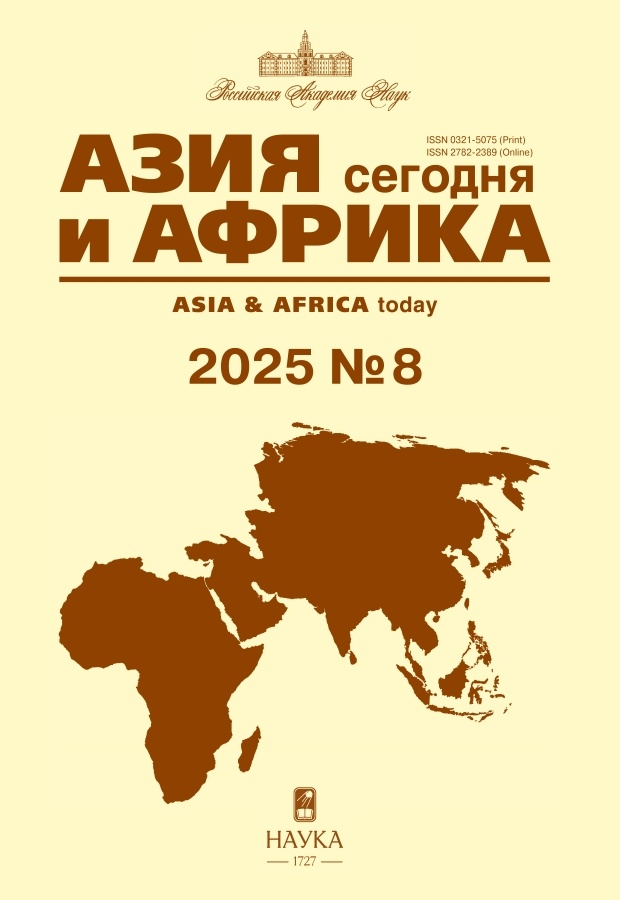№ 10 (2024)
Статьи
К 95-летию академика РАН А.Б.Давидсона
 5-7
5-7


Политика, экономика
Проблемы военно-экономического сотрудничества Центральноафриканской Республики и Российской Федерации и пути их решения
Аннотация
 8-15
8-15


Эволюция образа ШОС во внешней политике Индии
Аннотация
 16-24
16-24


Внешняя политика стран Северной Африки и Африканского Рога в ракурсе современных международных отношений
Аннотация
В статье рассматриваются особенности регионального вектора внешней политики группы стран Северной Африки и Африканского Рога, складывающиеся под влиянием как внутренних социальных, экономических, политических, так и внешних факторов. К числу последних следует отнести начавшийся в 2000-е гг. кризис глобализации мегатренд в эволюции человеческой цивилизации, обозначивший ряд новых глобальных вызовов и угроз её существованию. Им противостоят сложившееся единое и вместе с тем сложносоставное цивилизационное пространство человеческая цивилизация, включающее единое мировое информационное пространство, раскрывающее невиданные доселе возможности использования во благо человечества достижения научно-технического прогресса, применения бескрайнего, постоянно расширяющегося человеческого потенциала, цифровизации, интернет-экономики. При этом не только сохраняются многие старые, но и возникают новые, более сложные и трудноразрешимые проблемы, как внутренние, так и международного плана. Эти проблемы требуют своего решения, усилия на данном направлении становятся частью внешней политики государств региона.
 25-32
25-32


Проблема передающихся через воду болезней в странах Африки
Аннотация
 58-65
58-65


Экосистемы крупных рек Западной Африки: проблемы рационального использования в целях социально-экономического развития
Аннотация
 49-57
49-57


Обеспечение чистой водой как фактор эпидемиологического перехода в странах Африки южнее Сахары
Аннотация
 39-48
39-48


Малая держава в большой политике: о внешнеполитическом курсе Сингапура в эпоху Ли Куан Ю (1965-1990) и на современном этапе
Аннотация
 33-38
33-38


БРИКС сегодня
Эфиопия в БРИКС: мотивация, возможности и стратегические преимущества
Аннотация
 66-74
66-74


Трибуна соискателя
Эволюция военно-политического сотрудничества США и Катара: от соглашения в области безопасности до стратегического партнерства
Аннотация
 75-82
75-82













